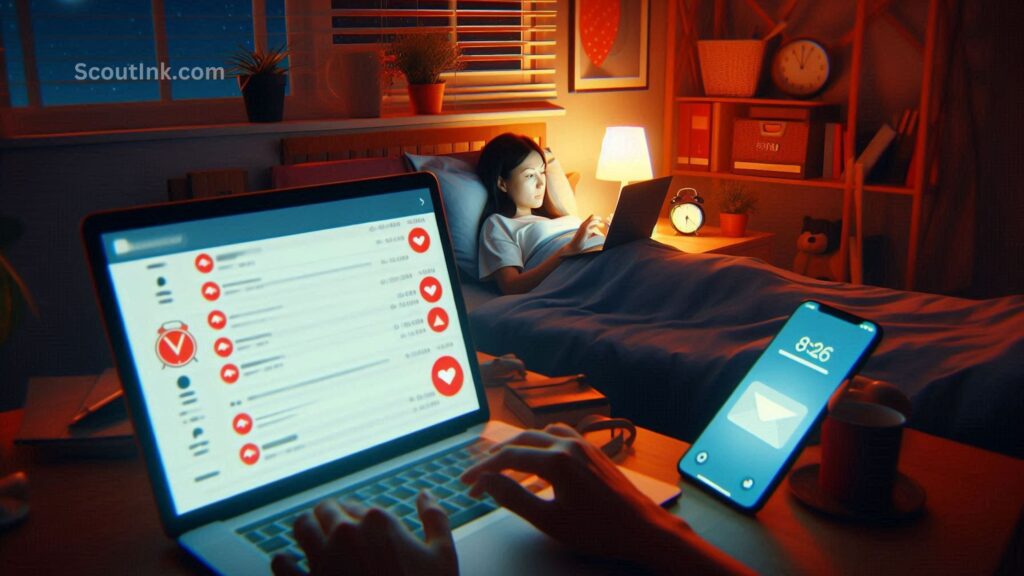How to Avoid Burnout While Working Remotely?
What started as a temporary break from the office has turned into a full-blown shift in how we work. Remote work has skyrocketed, with at one point, 62% of employed U.S. adults working from home. But it’s not just remote work that’s on the rise—burnout is at an all-time high. A whopping 69% of employees report feeling burned out while working from home, and it’s taking a toll on both productivity and overall well-being.
If you think burnout just means feeling tired from work, think again. It can lead to serious physical and mental health issues, including high blood pressure, heart disease, obesity, anxiety, depression, cognitive decline, and even Alzheimer’s. In extreme cases, burnout has even been linked to early death.
And then there’s the loneliness factor. Working remotely can be isolating, which comes with its own risks. Studies show that loneliness is worse for your health than obesity, excessive drinking, or even smoking. In fact, it can shorten your lifespan by up to 70%. Clearly, setting healthy work-from-home habits isn’t just about productivity—it could be a lifesaver.
The good news? You don’t have to accept burnout as part of remote work. Below, I’ll break down the three biggest causes of work-from-home burnout and, more importantly, how to fix them.
1. Struggling to Disconnect from Work
Ever find yourself checking emails before you even get out of bed? Sitting through a conference call while scarfing down lunch? Working on a report late into the night? If your laptop has become an extension of your body, you’re not alone.

Remote workers are logging an average of three extra hours per day—basically, another part-time job. And while getting more done might sound great, too much work can lead to stress, exhaustion, and eventually burnout.
Also Read: Best Focus Techniques to Work Efficiently

How to Fix It: Act Like You’re in an Office
- Set Office Hours: Define clear start and stop times for work, silence notifications after hours, and use an out-of-office message when you’re done for the day. If possible, keep a consistent schedule so your team knows when you’re available.
- Dress for Work: It’s tempting to stay in pajamas, but studies show that dressing professionally boosts cognitive function and productivity. So swap the sweats for a real outfit—it makes a difference.
- Create a Work Ritual: If you used to listen to a podcast on your commute, take a walk while listening before you start work. When you’re done for the day, physically leave your workspace—step outside and come back in as if you’re “arriving home.”
- Enforce Boundaries: If someone tries to schedule a late meeting, confidently say, “I’m unavailable at that time. How about [alternative date/time]?” No need to explain—your time is yours.
2. Losing Motivation & Inspiration
Do you dread opening your inbox? Feel like procrastinating more than usual? If you’re suddenly avoiding work, it’s not just a mood—it’s science.

Burnout actually changes your brain, disrupting cognitive functions like focus, learning, and decision-making. Stress puts your brain into survival mode, draining motivation and making even simple tasks feel overwhelming.
Also Read: Best Morning Routine for Freelancers & Remote Jobs

How to Fix It: Reignite Your Passion
- Reconnect with What You Love: Think back to what excited you about your job in the first place. If you enjoyed presenting, ask to lead a virtual meeting. If you loved brainstorming new ideas, schedule time for creative sessions.
- Prioritize Passion Projects: Before diving into emails, dedicate time each day to something that energizes you. Block an hour on your calendar for an “inspiration session” to focus on what you love.
- Understand Your Strengths: Not sure what fuels your motivation? Try taking a personality test like:
- Gallup CliftonStrengths – Identifies your top talents.
- Myers-Briggs (16Personalities) – Explains how you think and make decisions.
- Enneagram – Helps you understand your strengths and weaknesses.
Remember, your career is yours to shape. Take control and find joy in what you do.
3. Feeling Isolated & Unsupported
Remote work has its perks—no more small talk at the water cooler or unexpected desk drop-ins. But after a while, the silence can feel a little… lonely.

When things go wrong at work—a budget gets cut, a project stalls, or layoffs happen—you’re left to process it alone. Without the casual in-office interactions, it’s easy to feel disconnected and unsupported.
How to Fix It: Speak Up & Stay Connected
- Communicate Your Needs: If you’re struggling, don’t suffer in silence. Approach your boss or team with a proactive mindset. Try saying, “I want to stay engaged in my role—can we discuss ways to make that happen?” This shows commitment while allowing you to address your concerns.
- Build Virtual Connections: Strong workplace relationships reduce burnout. Schedule casual virtual coffee chats or organize a fun group call. If Zoom fatigue is real, consider an in-person meet-up at a park.
- Find Your Work Tribe: Whether it’s joining an industry Slack group, attending virtual networking events, or staying active on LinkedIn, connecting with like-minded professionals can make remote work feel less isolating.

Also Read: Best Free Apps for Staying Organized
Take Charge of Your Career & Well-Being
Working remotely means you have more control than ever over your career—and your health. The key is being aware of burnout warning signs and taking action before things spiral.
Your job shouldn’t run your life. Set boundaries, stay inspired, and nurture social connections. You’re in the driver’s seat—don’t let burnout take the wheel.




Post Comment